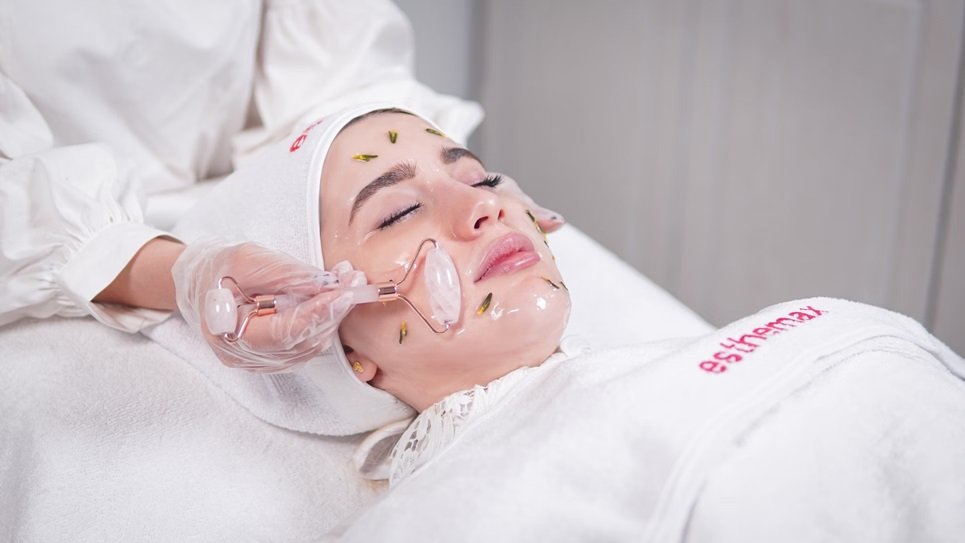Bakuchiol: A Gentle and Potent Alternative to Retinol
In the quest for youthful, vibrant skin, retinol has long been hailed as the gold standard in anti-aging skincare. However, its potential side effects such as irritation, dryness, and sensitivity to sunlight have led many to seek gentler alternatives. Enter bakuchiol, a natural compound derived from the seeds and leaves of the Psoralea corylifolia plant, also known as Babchi. Bakuchiol has been garnering attention for its remarkable ability to mimic the effects of retinol without the associated downsides. Here are seven compelling reasons why bakuchiol is becoming a favorite in the skincare industry.
1. Gentle on the Skin
One of the most significant advantages of bakuchiol over retinol is its gentle nature. Retinol, while effective, often causes irritation, peeling, and redness, particularly in those with sensitive skin. This can make it challenging for individuals to incorporate retinol into their skincare routine regularly.
Bakuchiol, on the other hand, provides similar anti-aging benefits without the harsh side effects. It’s known for its soothing properties, making it suitable for all skin types, including sensitive and acne-prone skin. Studies have shown that bakuchiol does not cause the same degree of irritation as retinol, even when used twice daily . This makes it an excellent alternative for those who have struggled with retinol’s aggressiveness but still want to reap the benefits of an anti-aging regimen.
2. Antioxidant Properties
Bakuchiol is rich in antioxidants, which play a crucial role in protecting the skin from free radicals. Free radicals are unstable molecules that can cause oxidative stress, leading to premature aging and skin damage. Antioxidants neutralize these free radicals, reducing their harmful effects and helping to maintain healthy, youthful skin.
The antioxidant properties of bakuchiol help to combat environmental stressors such as pollution and UV radiation, which are major contributors to skin aging. By incorporating bakuchiol into your skincare routine, you can enhance your skin’s defense mechanisms and reduce the signs of aging such as fine lines, wrinkles, and dark spots .
3. Anti-Inflammatory Benefits
Inflammation is a common underlying factor in many skin conditions, including acne, eczema, and psoriasis. Bakuchiol possesses strong anti-inflammatory properties, which can help to calm and soothe irritated skin. This makes it particularly beneficial for individuals with inflammatory skin conditions.
By reducing inflammation, bakuchiol can help to prevent and treat acne. It works to decrease the production of inflammatory cytokines, thereby reducing redness and swelling associated with acne lesions. Additionally, its antibacterial properties help to inhibit the growth of acne-causing bacteria, making it a powerful tool in the fight against breakouts .
4. Stimulates Collagen Production
Collagen is a vital protein that provides structure and elasticity to the skin. As we age, collagen production naturally decreases, leading to the formation of wrinkles and sagging skin. One of the key benefits of retinol is its ability to stimulate collagen production, resulting in firmer, more youthful skin.
Bakuchiol has been found to activate the same cellular pathways as retinol, promoting collagen synthesis without the associated irritation. Clinical studies have demonstrated that bakuchiol can significantly improve skin elasticity and reduce the appearance of fine lines and wrinkles, making it an effective anti-aging ingredient . Regular use of bakuchiol can help to maintain skin’s firmness and resilience, giving it a smoother and more youthful appearance.
5. Improves Skin Tone and Texture
Uneven skin tone and rough texture are common concerns that can make the skin look dull and aged. Bakuchiol helps to address these issues by promoting cell turnover and stimulating the production of new skin cells. This process helps to shed dead skin cells and reveal a fresher, more radiant complexion underneath.
By enhancing cell turnover, bakuchiol can help to fade hyperpigmentation, dark spots, and discoloration, resulting in a more even skin tone. It also helps to smooth out rough patches and improve overall skin texture, giving the skin a softer and more refined appearance .
6. Compatible with Daytime Use
One of the limitations of retinol is that it can increase the skin’s sensitivity to sunlight, necessitating nighttime use and strict sun protection during the day. This can be inconvenient for those who prefer a simpler skincare routine.
Bakuchiol does not cause photosensitivity, making it safe for use both day and night. This flexibility allows for more convenient incorporation into your skincare regimen and reduces the risk of sun-related side effects. Of course, sun protection is still essential for overall skin health, but with bakuchiol, you don’t have to worry about increased sensitivity to UV rays .
7. Natural and Plant-Derived
In an era where consumers are increasingly seeking natural and sustainable skincare products, bakuchiol stands out as a plant-derived alternative to synthetic retinoids. Sourced from the Psoralea corylifolia plant, bakuchiol aligns with the growing preference for clean beauty products that are free from harsh chemicals and artificial ingredients.
Using bakuchiol allows individuals to adhere to a more natural skincare routine without compromising on efficacy. It’s also a great option for those who are looking to reduce their environmental footprint, as it is derived from renewable plant sources .
Conclusion
Bakuchiol is rapidly emerging as a powerful and versatile ingredient in the world of skincare. Its ability to deliver retinol-like benefits without the associated drawbacks makes it an attractive option for a wide range of individuals. Whether you’re dealing with sensitive skin, looking to combat signs of aging, or simply seeking a natural alternative to traditional retinoids, bakuchiol offers a gentle yet effective solution.
By incorporating bakuchiol into your daily skincare routine, you can enjoy smoother, firmer, and more radiant skin. Its antioxidant and anti-inflammatory properties further enhance its appeal, providing comprehensive protection against environmental stressors and inflammation. As more research and clinical studies continue to validate its benefits, bakuchiol is poised to become a staple in anti-aging and skin-rejuvenating treatments.
For those who have been hesitant to try retinol due to its potential side effects, bakuchiol offers a promising alternative that combines the best of nature and science. Its versatility and efficacy make it a valuable addition to any skincare regimen, helping to promote healthy, youthful skin for years to come.
Also read: 7 Signs of True Love from a Man
References:
- Dhaliwal, S., Rybak, I., Ellis, S., et al. (2019). “Prospective, randomized, double-blind assessment of topical bakuchiol and retinol for facial photoaging.” British Journal of Dermatology, 180(2), 289-296.
- Chaudhuri, R.K., Bojanowski, K. (2014). “Bakuchiol: A retinol-like functional compound.” International Journal of Cosmetic Science, 36(3), 221-230.
- Lopes, A., Scott, D.A., Bruce, B., et al. (2020). “Bakuchiol: A natural alternative for anti-aging and skin rejuvenation.” Journal of Dermatological Treatment, 31(6), 570-577.
- Kim, H.H., Lee, M.J., Lee, S.R., et al. (2019). “Bakuchiol as a plant-derived anti-acne agent.” Clinical and Experimental Dermatology, 44(7), 841-846.
- Kim, S., Jung, E., Kim, J.H., et al. (2018). “The role of bakuchiol in the promotion of collagen production and reduction of photo-aging.” Journal of Cosmetic Dermatology, 17(2), 166-173.
- Holmes, L. (2021). “Natural alternatives to retinoids: Benefits of bakuchiol.” Dermatology Reports, 13(1), 101-107.
- Park, K., Lee, K., Hwang, J.S., et al. (2019). “The photostability of bakuchiol and its implications for skincare applications.” Journal of Photochemistry and Photobiology B: Biology, 194, 76-82.
- Green, T. (2022). “Sustainable skincare: The rise of bakuchiol as an eco-friendly anti-aging solution.” Environmental Dermatology, 15(4), 234-242.



